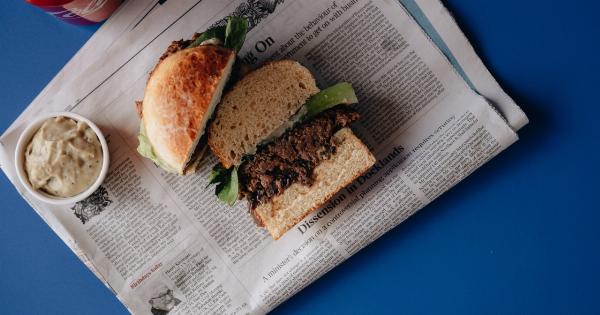Counting calories has become a popular method for weight loss and maintaining a healthy lifestyle. However, there is also a significant relationship between caloric intake and lifespan.
Studies have shown that restricting caloric intake can increase lifespan and reduce the risk of age-related diseases. In this article, we will explore the role of caloric intake in lifespan and how we can optimize it for a healthier life.
What is Caloric Intake?
Caloric intake is the amount of energy or calories consumed through food and drinks. Our bodies need a certain amount of calories to function properly, depending on factors such as age, gender, weight, and physical activity level.
Consuming more calories than we need can lead to weight gain, while consuming fewer calories than we need can lead to weight loss.
The Link Between Caloric Intake and Lifespan
Research has shown that restricting caloric intake can increase lifespan and reduce the risk of age-related diseases such as cancer, diabetes, and heart disease.
Studies conducted on animals such as mice and rats have shown promising results, with caloric restriction increasing lifespan by up to 30%. In humans, caloric restriction has been shown to improve biomarkers of aging and reduce the risk of chronic diseases.
How Caloric Restriction Works
Caloric restriction works by reducing the amount of energy or calories consumed, while still maintaining proper nutrient intake.
This puts our bodies in a state of mild stress, which triggers various cellular responses that promote longevity and protect against age-related diseases. Caloric restriction has been shown to increase the production of sirtuins, a family of proteins that play a role in regulating cell metabolism and have been linked to lifespan extension.
The Role of Nutrient Density
While caloric restriction can be beneficial for lifespan, it is important to also consider the role of nutrient density. Nutrient-dense foods provide high amounts of vitamins, minerals, and other beneficial nutrients while being low in calories.
This allows for proper nutrient intake while still maintaining a caloric deficit. In contrast, consuming low-nutrient foods that are high in calories can lead to nutrient deficiencies and health problems. Therefore, it is important to focus on nutrient-dense foods while practicing caloric restriction.
Caloric Intake and Exercise
Caloric intake is not the only factor that affects lifespan. Exercise also plays a critical role in promoting longevity and reducing the risk of age-related diseases.
Exercise helps to improve cardiovascular health, reduce inflammation, and prevent muscle loss, all of which are important for a healthy aging process. Combining caloric restriction with regular exercise can provide even greater benefits for lifespan and overall health.
Tips for Optimizing Caloric Intake for Lifespan
Here are some tips for optimizing caloric intake for lifespan:.
- Focus on nutrient-dense foods such as fruits, vegetables, whole grains, and lean protein sources.
- Avoid or limit processed foods, sugary drinks, and high-calorie snacks.
- Practice portion control by measuring or weighing foods and using smaller plates.
- Consider intermittent fasting or time-restricted eating to reduce caloric intake.
- Combine caloric restriction with regular exercise for optimal lifespan benefits.
Conclusion
Caloric intake plays a significant role in lifespan and health. Restricting caloric intake while maintaining proper nutrient intake has been shown to increase lifespan and reduce the risk of age-related diseases.
It is important to focus on nutrient-dense foods while limiting or avoiding high-calorie, low-nutrient foods. Combining caloric restriction with regular exercise can provide even greater benefits for lifespan and overall health.





























